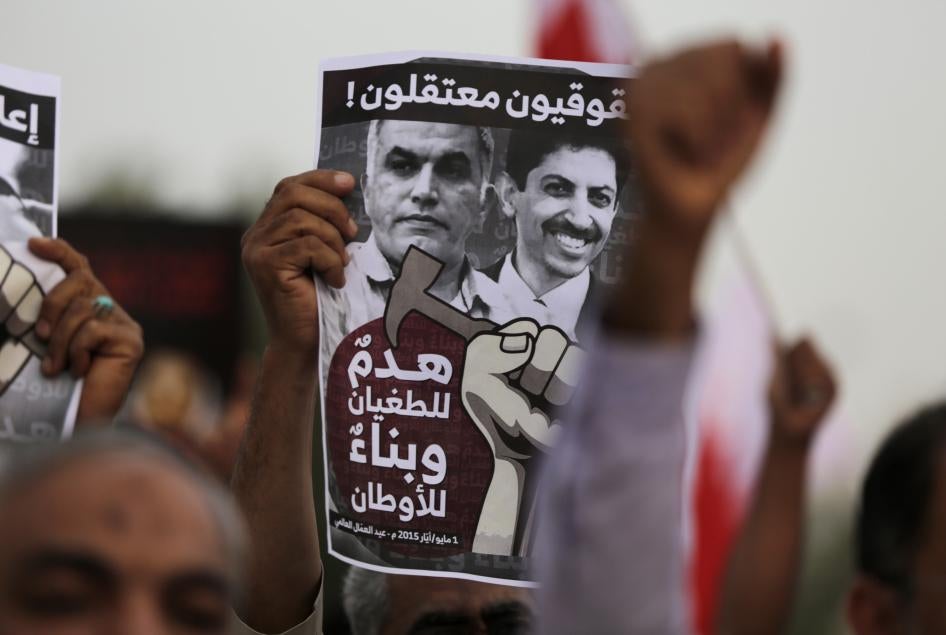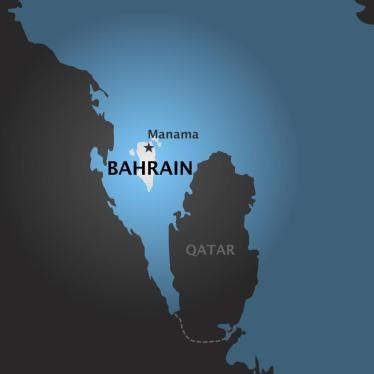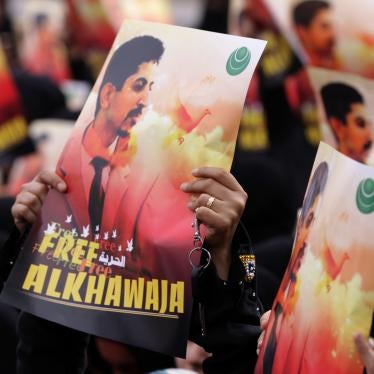(Beirut) – Bahraini authorities on March 8, 2023, revoked the entry visas they had issued on January 30, 2023, to two Human Rights Watch staff members to attend the 146th Inter-Parliamentary Union (IPU) Assembly, Human Rights Watch said today.
Human Rights Watch holds permanent observer status with the IPU, granting Human Rights Watch access to the parliamentary organization’s Assemblies. In light of Bahrain’s most recent restriction against rights groups, the parliamentary group’s members and its leadership should publicly demand that Bahrain authorities unconditionally and immediately release all those imprisoned solely for peaceful speech and call for the government to immediately rescind its draconian “political isolation laws.”
“Bahrain’s hosting of sporting and high-level international events is a transparent attempt to launder its decades-long campaign to crush political opposition and suffocate the country’s vibrant civil society,” said Tirana Hassan, Human Rights Watch’s acting executive director. “Its unilateral reversal of Human Rights Watch’s access to the IPU conference is a blatant example of its escalating repression. Governments, organizations with influence, and key officials should speak out loudly against Bahrain’s abuses so they are not complicit in its efforts to whitewash its horrific rights record.”
Bahrain is hosting the meeting of the IPU, a global organization of national parliaments, from March 11-15. The organization’s slogan is “For democracy. For everyone,” and the theme of the 146th Assembly is “Promoting peaceful coexistence and inclusive societies: Fighting intolerance.”
These statements are in stark contrast to the extensive record of serious human rights abuses in Bahrain that Human Rights Watch and other rights organizations have documented, Human Rights Watch said. This includes the continued detention of the prominent human rights activist and Danish-Bahraini dual citizen Abdulhadi Al-Khawaja. Al-Khawaja is reportedly suffering serious health problems while being denied adequate medical care.
Bahraini authorities impose restrictions on expression, association, and assembly that violate the country’s international human rights obligations. Elections are neither free nor fair, opposition voices are systematically excluded and repressed, and independent media have been effectively banned from the country. A joint 2021 report by the rights groups BIRD and Reprieve found that Bahrain has at least 26 men on death row, all of whom have exhausted legal remedies and are at risk of execution. Nearly half of those men have alleged being tortured into providing false confessions, later used against them in court.
Bahrain’s “political isolation laws,” introduced in 2018, barred former members of the country’s opposition parties from running for parliament or sitting on boards of governors of civil society organizations. These laws also target former prisoners, including those detained due to their political work. Those affected by these laws also routinely experience delays and denials when applying for a Good Conduct Certificates, which Bahraini citizens and residents need to apply for a job or university admission or even join a sports or social club. Two of Bahrain’s former parliament members are in prison for exercising their freedom of expression, and the government has forced many more into exile and stripped them of their citizenship.
On March 5, Bahrain hosted Formula One’s (F1) opening season race. Twenty-one groups, including Human Rights Watch, sent a letter to F1’s president to raise “serious concerns over F1’s ongoing role in ‘sportswashing’ amidst a deterioration in Bahrain’s human rights situation.” An F1 driver, Lewis Hamilton, recently said that he is “not sure [the human rights situation] has got better while we have been coming all these years” to countries like Bahrain and Saudi Arabia.
“With local civil society severely restricted by Bahrain’s autocratic government, members of the IPU Assembly should live up to its organizational values and speak out on behalf of Bahrain’s victims of repression,” Hassan said.









